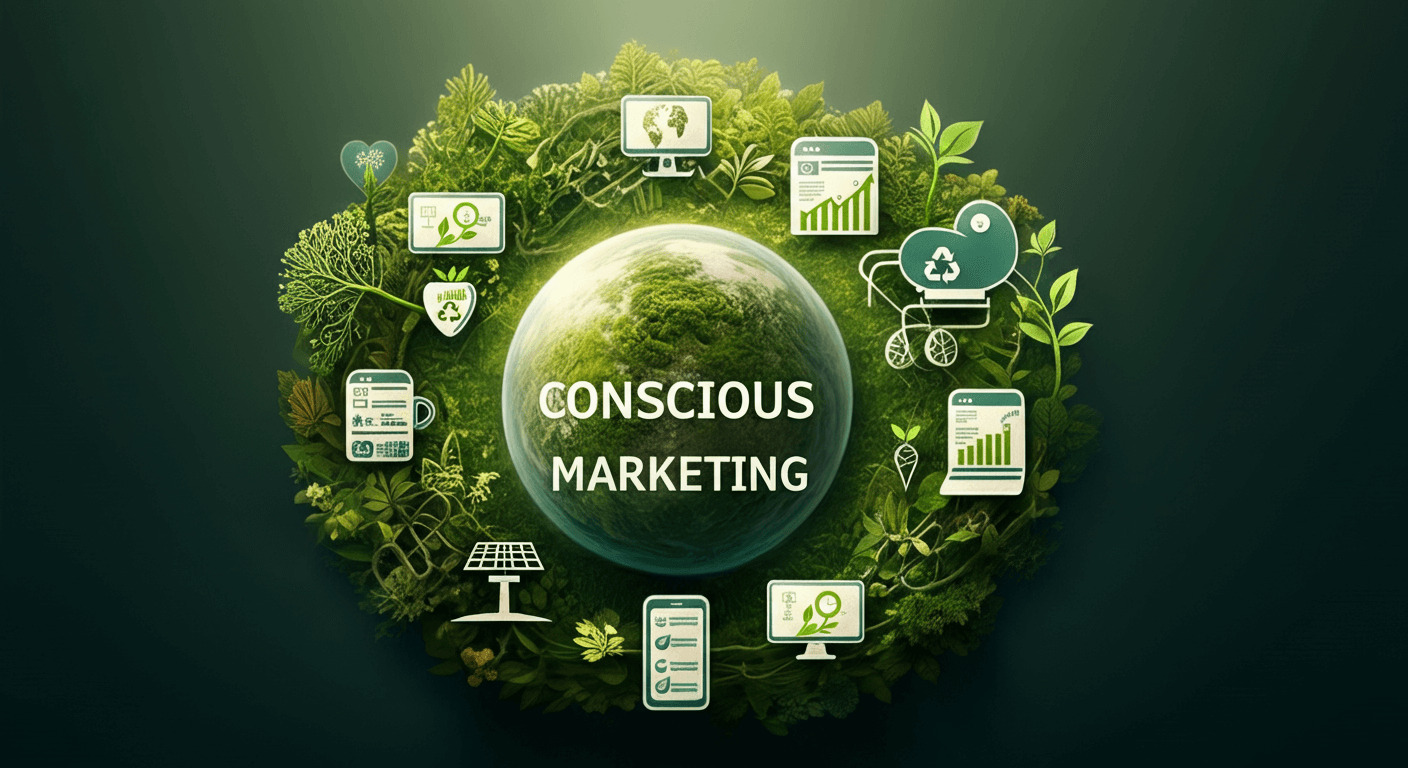Marketing has evolved far beyond catchy slogans and clever billboard designs. At the heart of this evolution lies a growing shift toward conscious marketing—an approach rooted in authenticity, ethics, and a shared sense of responsibility. With consumers increasingly prioritizing values like sustainability, social justice, and community impact, businesses are finding that practicing conscious marketing isn’t just the right thing to do; it’s also an essential strategy for building brand loyalty in a hyper-competitive landscape.
This blog will explore what conscious marketing means, why it’s becoming crucial in today’s marketplace, and how your brand can adopt these principles to inspire long-term trust and loyalty from your audience.
What Is Conscious Marketing?

At its core, conscious marketing goes beyond promoting products or services. It’s about aligning your marketing strategies with values that resonate deeply with your audience. This means engaging with ethical practices, promoting sustainability, and fostering transparency in every aspect of your brand’s communications and operations.
Unlike traditional marketing, which often prioritizes immediate sales goals, conscious marketing focuses on creating meaningful connections with consumers. It combines purpose with profit, ensuring that a brand’s actions positively contribute to society and the environment.
Here are some defining elements of conscious marketing:
- Authenticity: Representing your brand as it truly is, without gimmicks or exaggerated claims.
- Sustainability: Actively working to minimize environmental impact in your operations and encouraging others to do the same.
- Empathy: Understanding and addressing the real-world concerns of your audience.
- Transparency: Being upfront about your brand’s practices, values, and how your products are made.
When done right, conscious marketing transforms a brand from just another business into a trusted ally that customers feel good supporting.
You can also read more for better understanding: What Is Conscious Marketing? A Guide for Manufacturing Marketers, Sales Professionals, and Business Owners
Why Is Conscious Marketing Becoming Essential?

The rise of conscious marketing is no coincidence. It’s a direct response to changing consumer expectations and the demand for greater accountability. Here’s why this approach is quickly becoming a non-negotiable:
1. Consumer Values Are Changing
Today’s consumers aren’t just buying products; they’re buying into brands. Studies reveal that 70% of consumers want to support businesses that align with their values. For Millennials and Gen Z in particular, factors like sustainability, diversity, and corporate social responsibility heavily influence purchasing decisions. Brands that fail to reflect these priorities run the risk of losing relevance.
2. The Demand for Transparency
Companies can no longer hide behind closed doors. Transparency in business practices has become a key marker of trustworthiness. Whether it’s disclosing how products are sourced, openly acknowledging missteps, or sharing progress updates on social initiatives, transparency fosters trust, and trust is the bedrock of customer loyalty.
3. The Power of Social Media
Social media has empowered consumers like never before. It takes seconds for a misstep to go viral or for ethical practices to be praised by millions. Brands that demonstrate genuine commitment to social and environmental causes often see their messages amplified by engaged followers, transforming their marketing efforts into powerful word-of-mouth campaigns.
4. A Competitive Edge
With more businesses entering the marketplace, standing out has never been more challenging. A focus on conscious marketing can set your brand apart. Offering more than just quality products or services, you present a meaningful story and a shared mission that resonates on a deeper level with your audience.
Real-World Examples of Conscious Marketing
Some brands are already reaping the benefits of conscious marketing. Here are a few examples that highlight the impact of such efforts:
Patagonia
Outdoor apparel brand Patagonia is a poster child for conscious marketing. Their commitment to sustainability is evident through initiatives like using recycled materials, encouraging customers to repair rather than replace products, and donating 1% of revenue to environmental causes. Their slogan, “We’re in business to save our home planet,” perfectly encapsulates their purpose-driven approach.
Ben & Jerry’s
Famous for its ice cream, Ben & Jerry’s is equally known for its strong stance on social justice issues. From supporting voting rights to advocating for climate action, their campaigns resonate with consumers who share similar values, creating loyalty that goes far beyond their products.
Everlane
Everlane, a fashion brand, embraces radical transparency. They openly share the costs behind their products, from materials to labor. Customers can access detailed information about their factories and the sustainable practices used to minimize impact. This commitment to ethics ensures strong customer trust.
How to Adopt Conscious Marketing for Your Brand
If you’re ready to integrate conscious marketing into your strategy, here’s how you can take the first steps:
1. Define Your Values
Start by identifying the core values your brand stands for. What social, environmental, or ethical issues resonate the most with your team and your audience? Align your messaging and actions with these values.
2. Prioritize Transparency
Be honest and upfront about how your products are made, where you source your materials, and the impact of your operations. If there are areas where your brand falls short, acknowledge them and share plans for improvement.
3. Engage with Your Audience
Open the lines of communication and listen to your customers. What matters most to them? How can your business address their concerns? Use surveys, social media polls, and direct conversations to better understand their priorities.
4. Support Causes That Align With Your Brand
Take your commitment a step further by actively supporting causes that align with your values. Donate a portion of your profits, sponsor local events, or create initiatives that drive meaningful change.
5. Tell Stories That Inspire
Use storytelling to highlight your brand’s purpose and impact. Whether it’s a behind-the-scenes look at sustainable production methods or a feature on the impact of a donation campaign, compelling stories help humanize your brand and inspire loyalty.
Building Loyalty Through Conscious Marketing
Conscious marketing is more than a trend; it’s a shift towards meaningful, value-driven communication. By aligning your brand with causes that inspire trust and resonate with your audience, you’re not just building a customer base—you’re fostering authentic connections that lead to lasting loyalty.
The brands that succeed in the future won’t just sell products; they’ll stand for something bigger and work to make a positive impact. Now is the time to assess your marketing approach and ensure your brand aligns with the values of today’s conscious consumer.
Looking for more insights on how to transform your marketing strategy? Stay tuned for regular updates or connect with us directly for tailored strategies to grow your brand.
